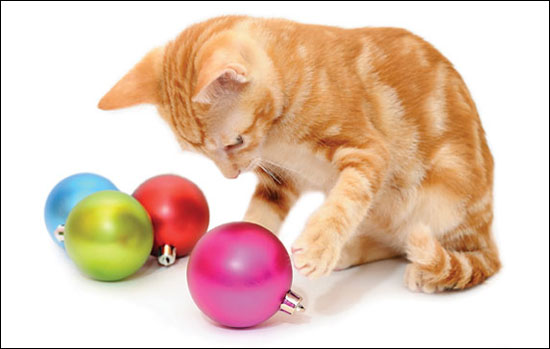-
-
-
-
-
- About extra-mural studies (EMS)
- EMS requirements
- Information for vet students
- Information for EMS providers
- Information for vet schools
- Temporary EMS requirements
- Practice by students - regulations
- Health and safety on EMS placements
- EMS contacts and further guidance
- Extra-mural studies fit for the future
-
-
- Code of Professional Conduct for Veterinary Surgeons
- Code of Professional Conduct for Veterinary Nurses
- Contact the Advice Team
- XL Bully dog ban
- 'Under care' - new guidance
- Advice on Schedule 3
- Controlled Drugs Guidance – A to Z
- Dealing with Difficult Situations webinar recordings
- FAQs – Common medicines pitfalls
- FAQs – Routine veterinary practice and clinical veterinary research
- FAQs – Advertising of practice names
- GDPR – RCVS information and Q&As
Remember to include vet care in Christmas planning
3 December 2010
If you are a pet owner, remember to check your vet’s opening hours in the run up to Christmas. In particular, you should ensure you know what the arrangements are for veterinary emergencies when the practice is closed.

Despite owners’ best efforts, emergencies can arise over Christmas, so it’s best to be prepared, says RCVS Vice-President Jerry Davies.
Pets sometimes take a fancy to Christmas decorations tinsel, for example, can cause serious intestinal injuries if ingested, and broken glass baubles can cause foot injuries. Whatever the emergency though, pets deserve prompt veterinary attention.
Veterinary surgeons across the UK are required under our guidelines to make provision for out-of-hours emergency veterinary treatment, even at Christmas.
However, animal owners are responsible for knowing what to do and where to go in an emergency, including over the Christmas and New Year holiday period, when many practices will have reduced opening hours.
"Despite owners’ best efforts, emergencies can arise over Christmas, so it’s best to be prepared."
The arrangements for providing emergency care when practices are shut do vary, but practices should always be able to explain clearly what these are, says Jerry.
Some practices may provide emergency cover themselves, others will team up with different practices to look after a bigger area, or contract out to dedicated emergency service providers. Be prepared to travel a little bit further if you are diverted to an on-call service.
There can be other festive hazards too. This season often brings a lot of poisoning emergencies says Alexander Campbell of the Veterinary Poisons Information Service, an organisation that advises veterinary professionals about suspected poisoning cases.
Last Christmas, we handled over 50 telephone calls a day from veterinary practices. Some cases were serious and a few had fatal outcomes.
"Wherever possible, pets should be kept away from Christmas trees and decorations, festive plants, presents, batteries, foods and snacks, he warns, adding, "The ‘Pets and Poisons’ leaflet we produced with the BVA Animal Welfare Foundation contains helpful advice for animal owners.
Whether you acquire new animals at Christmas or any other time of year, we recommend that you register all your pets with a vet.
The easiest way for you to find practices in the UK is via our free online ‘Find-a-Vet’ service, which can be searched by town or postcode.
This also shows whether practices are accredited under the RCVS Practice Standards Scheme a voluntary scheme that helps promote and maintain the highest standards of veterinary care.
So, when making Christmas plans, pet owners should remember the following:
- Check with your own vet what their emergency cover provisions and holiday opening hours are;
- Use Find a Vet if you need to locate veterinary practices in your area or elsewhere in the UK;
- Home visits are rare, even in an emergency, so be prepared to take your animal to a practice (which may be different to your usual practice), as that’s where it can usually be treated best. The practice should be able to offer advice on local services that are prepared to transport animals;
- There is no NHS for pets: emergency treatments out-of-hours will often be more expensive (although vets are required to obtain clients’ consent for any non-emergency treatment);
- If you’re leaving your pet with a friend or pet-sitter whilst you’re away, remember to leave them details of your vet’s emergency cover arrangements.